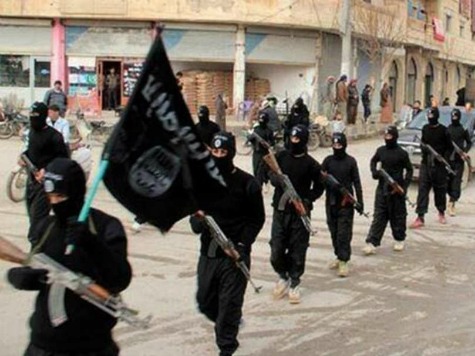The Turkish government’s involvement in the fight against the Islamic State (ISIS) has made many question the country’s intentions. Turkey has refused to participate in airstrikes that even the most heavily Sunni countries, like Saudi Arabia and Jordan, have joined in on, and has refused to allow use of its airspace. But now, evidence is surfacing that Ankara may be closer to Iran than previously believed.
Author John Schindler, formerly with the NSA, notes that numerous questionable activities have made many wonder just how much influence Tehran has over the Turkish government. Tehran supports the government of Syrian President Bashar al-Assad, while Turkey has long-supported rebel organizations within Syria, causing a rift between the nations before the tenure of President Tayyip Erdogan. Bilateral relations began to warm in June, when President Hassan Rouhani visited Ankara to reestablish relations between the two countries. The meeting appears to have worked, as Iranian Foreign Minister Mohammad Javad Zarif said favorably of the nation then, “We always look positively to Turkey hosting nuclear talks.”
The public overtures, Schindler writes, are shallow alliances compared to what is believed to occur behind the scenes. He cites two major potential points of entry for the Iranian government in Turkey: the Turkish government’s alleged relationship with Tawhid-Salam, a decades-old terrorist group with ties to Iran, and the relationship between Turkish intelligence chief Hakan Fidan and Tehran.
Tawhid-Salam, he writes, “has long been believed to be a front for Iranian intelligence, particularly its most feared component, the elite Quds (Jerusalem) Force of the Revolutionary Guards Corps (Pasdaran), which handles covert action abroad, including terrorism in many countries.” Reports have surfaced that Tawhid-Salam is close enough to the Turkish government that they were permitted to tour a NATO radar base in Kürecik district, potentially as an Iranian intelligence-gathering operation.
As for Fidan, the Israeli government appeared somewhat concerned about his appointment this summer, with sources positing, according to Haaretz, that “exchange of intelligence between the two countries will be harmed, and … that Israel will have to limit the transfer of information to Turkey, out of a concern that it may be passed on to enemy organizations or states.” Schindler notes there is evidence that Fidan is on Pasdaran’s payroll and has very close ties to Tehran. Fidan, in Turkish media (translated through Google), has denied any illicit ties to the government of Iran in May, calling claims that he was an Iranian “agent” “unacceptable, very heavy insults and slander.”
Whatever concerns some may have had with the nations’ bilateral relationship before the Islamic State’s surge in Iraq and Syria appear to only be exacerbated by their stance on that particular crisis. Iranian officials have praised the potential between the two, with Moayyed Hosseini Sadr, the head of what Iran’s PressTV calls “the Iran-Turkey parliamentary friendship group,” stating, “Constant consultation between the political and parliamentary officials of Iran and Turkey helps maintain regional peace and stability and prevents the spread of the activities of extremist and terrorist groups in the region.”
Concerning the Islamic State, both nations appear cautious about the potential of U.S.-led airstrikes on the terrorist group. As NPR Istanbul correspondent Peter Kenyon reports, “Both Tehran and Ankara appear to be adopting a bifurcated, if not schizophrenic, approach to the Islamic State crisis – public denunciation of any collaboration with the U.S. while de facto cooperation of varying degrees continues on the ground.”
Iran has been no friend to the Islamic State, while also calling U.S.-led efforts “ridiculous.” Turkey has not allowed the use of its airspace to attack the enemy. Whether the Islamic State’s overwhelming violence will become a sufficient threat to prompt Turkey to work more closely with the U.S. government remains to be seen.

COMMENTS
Please let us know if you're having issues with commenting.